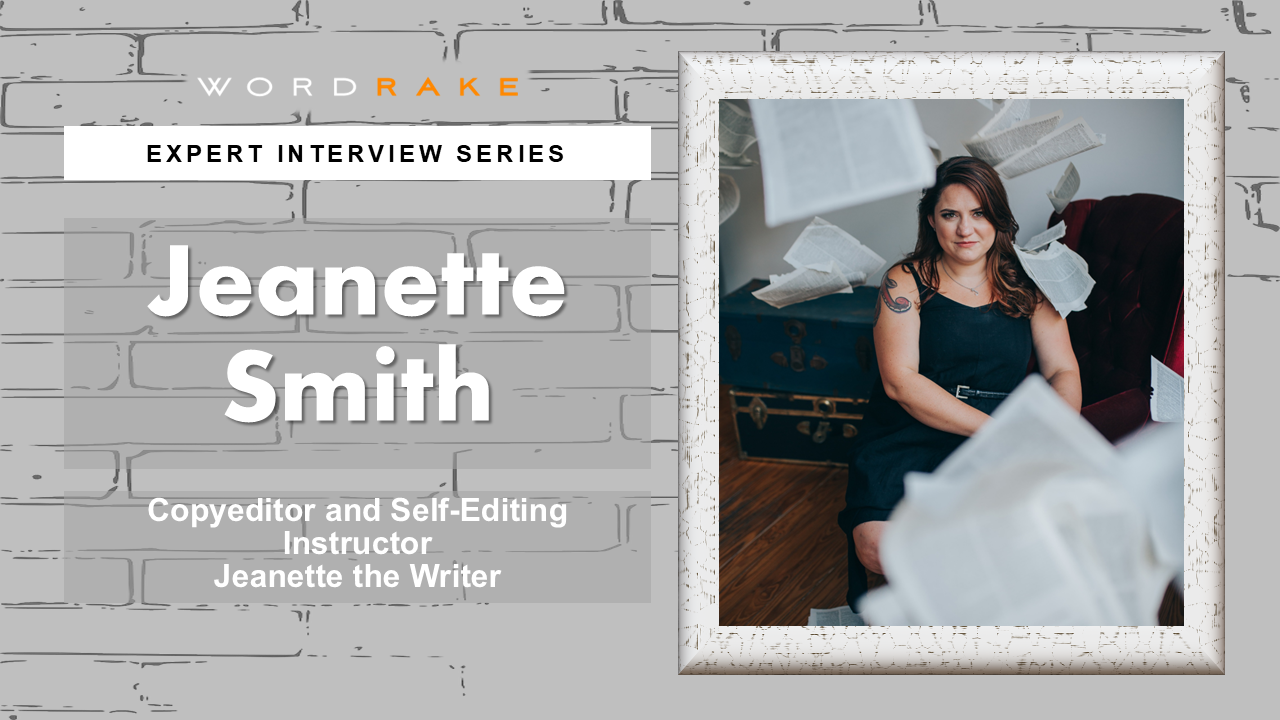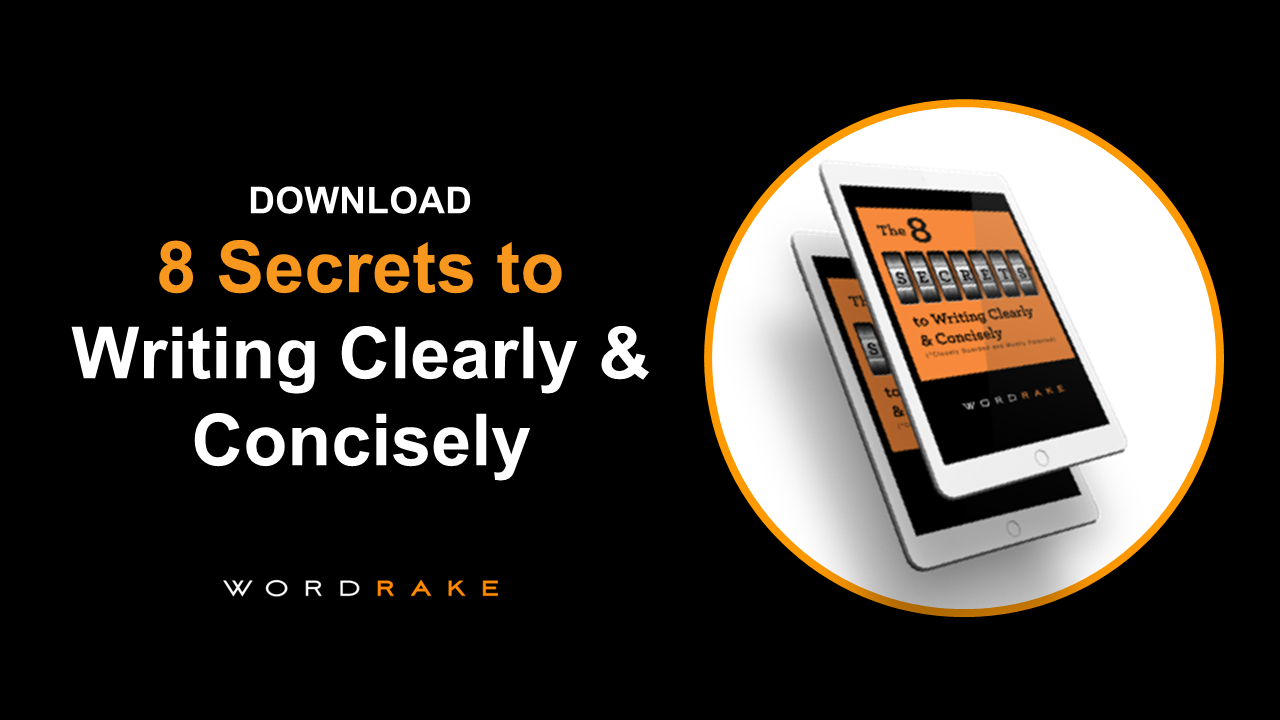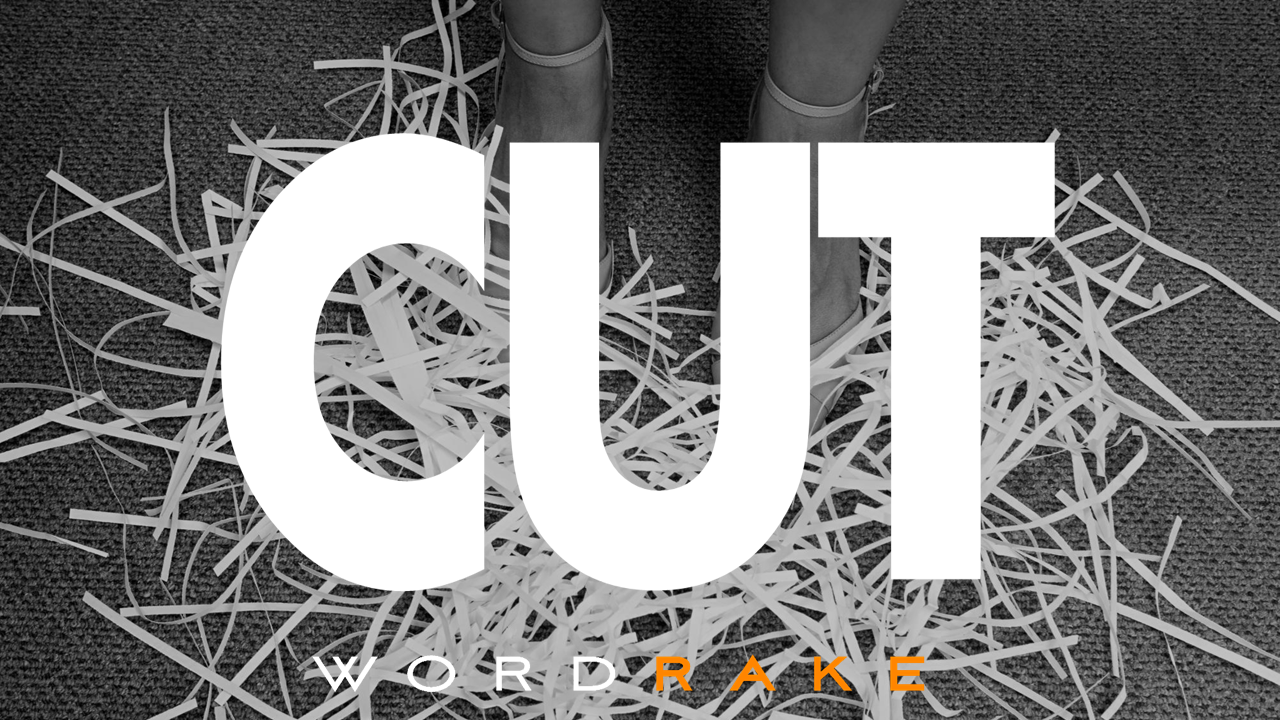Finding the right editor for your work lets your voice shine through your prose. Jeanette Smith loves diving into an editing job, finding the writer's true voice, and teasing out any weaknesses in the piece to showcase the brilliance of that voice. She was kind enough to share some of her wisdom with us as we wondered how you find the perfect editor for your work.
What is your role and how are you involved in editing?
I am a freelance line editor and copyeditor who has been working in the editing field for about eight years. My role comes into play after the author has edited for big-picture elements. Line editing would adjust wording and flow, making the prose smooth and ensuring every word is the exact right one. Copyediting comes after that and deals mostly with grammar, spelling, and punctuation, providing that final polish before formatting.
What do you love about your job? What do you not love?
The thing I love most about editing is that I’m helping other people’s dreams come true. Writing a book is such a HUGE triumph that very few people achieve. Taking it to the finish line with self-editing and professional editing is something even fewer people do. To be a part of that is so rewarding. There are downsides, however, the biggest being my lack of pleasure reading. After you stare at words all day, the last thing you want to do for fun is stare at more. So despite reading twenty to thirty books a year to edit them, I don’t read as much for fun as I used to.
What makes you reject a prospective editing or proofreading job?
There are some obvious reasons I might turn down a project: the author wants developmental editing (I only do line and copy), the genre isn’t one I work on (Sorry, no horror or poetry), the timeline doesn’t fit with my schedule (I’m usually booked a few weeks ahead of time), or their budget doesn’t match the work requested (I follow standard rates as published by the EFA). But even if all those things align, I still might turn down a project based on personality. The author–editor relationship requires a huge amount of trust between both parties, and you both need to be on the same page about the style and depth of the edit. If I feel the author and I don’t align on those things, then the project isn’t going to be the right fit.
What exactly does an editor do? How is it different from proofreading?
There are actually many roles in the writing and publishing world that have the title “Editor.” You might have developmental editors (big picture), line editors (wording and flow), and copyeditors (grammar), who all help with polishing the book for publication. Then there are also acquisitions editors (people at publishing houses who decide which books to acquire), lead editors (people who oversee other editorial professionals but don’t edit themselves), and executive editors (higher-ups who manage lead editors). A proofreader is also an important part of the editorial arts, but unlike developmental, line, and copyeditors, proofreaders aren’t making any changes or decisions about the book. They are using the style guide supplied by the copyeditor and taking a last look at the formatted document to ensure no final goofs remain.
Are editors able to edit their own writing?
In addition to my editing work, I am also a creative writer, and I can unequivocally say that every writer needs an editor, even if the writer is an editor. Not every editor specializes in every type of editing. For example, I don’t provide developmental editing because my brain just doesn’t work the way it needs to for that service. So I absolutely need critique partners, beta readers, and professional editors to help me with big-picture edits. Even copyediting shouldn’t always be done by the author/editor because they are too close to the book. I had a separate copyeditor and proofreader for the nonfiction book I self-published because I knew I couldn’t get it there by myself. Every author needs an editor!
What are the differences in the skillsets you need to be a good writer verses a good editor verses a good proofreader?
While there is some overlap between these skills, they do require different mentalities and outlooks. Writing is the process of creation. We are spinning something out of nothing and being as creative as possible. Being a successful writer means being both inventive and productive, getting words on the page and making sure they are entertaining. Editing, on the other hand, is about curation. Now we have all these words, so we need to go through and pick out just the exact right ones we need for the story. This is like the difference between buying books and then trying to clean out your bookshelf. They simply require different mindsets. Proofreading is part of the editorial mindset, but it is more focused on correctness then creation or curation.
What are your writing and editing pet peeves?
While I don’t have specific things like commas that drive me up the wall, there are two aspects of writing and editing that are absolutely pet peeves. For writing, my pet peeve is when someone says it’s easy. They clearly haven’t researched everything it involves if they think crafting an emotional and compelling story and then publishing it will be easy. Do your research. Learn what makes a good book. Learn how to query an agent. Don’t just go on Facebook after you’ve finished the first draft and ask to have it published; that’s a way to bring scammers out of the woodwork. It’s sort of the same for editing. My biggest peeve is when people obviously don’t self-edit. Readers will know if you took time to fill plot holes or deepen characters or put the commas in the right place. Skipping self-editing is a big no no, but many people do it anyway in a rush to publication. If you as an author don’t care enough to put in the work to make it better, then why should I, a reader, care to read it?
What are the qualities of good writing? Does it differ depending on genre?
This is an incredibly subjective question, but I do see some qualities of good writing that span across genres, age groups, or other aspects. The first quality of good writing is truth. It sounds strange to say we need to write the truth if we are writing fiction, but what it means is that we need to spin that fictional world as closely as possible to the emotional truth of being a human. People read for entertainment, yes, but they also read to understand the world better and learn about themselves through your stories and characters. Use your real feelings, your actual senses, and your distinct viewpoint. Put those into your book, no matter how fictional it may be. The other aspect of good writing that spans all books is voice. Voice is that elusive aspect of writing that allows us to read something we’ve never seen before and go “So and so must have written this.” It’s your cadence, tone, mood, word choice, sentence structure, and style all rolled into one hard-to-define quality. Voice develops as we write in our own distinct voice.
How does AI change things for professional editors? Is there still value in hiring a human?
AI is a rapidly evolving technology, so even as I write this, the circumstances are changing. But at this moment in 2025, AI cannot replace a human editor. Some writers and editors may choose to use it as an aid in their editing, but human discernment and contextual understanding will always be critical to editing, and a computer program can’t provide those things. I once ran a story of mine through generative AI. The story took place entirely underwater on scuba equipment, but the AI said the story could benefit from some dialogue (*facepalm*). I have also tested this with copyediting. I introduced eighteen errors—things copyeditors are trained to find—into a story and fed it to five different AI programs. The one that did the best only found five of the eighteen errors. And based on its feedback, it would only have corrected three of those properly. The other two suggestions would have introduced other errors. AI is not a replacement for a human yet. Please, please, please hire a human.
Are you willing to edit AI derived writing? Why?
Personally, I will not edit AI generated work. As a line editor and copyeditor, my job is to find your unique author voice and enhance it while smoothing things out for the reader. If your voice was never in the document to begin with, then there is nothing for me to strive for, no “you” to pull out of the wording.
Are you worried that AI will take over for human editors? Why or why not?
At this moment, I am not worried that AI will take over human editing. It simply can’t do the job properly. What I am worried about is writers not realizing this and trusting AI for everything. Despite how amazing it seems, AI has major limits, and we need to be objective in how we see the value of the technology. It’s not as valuable yet for what people want to or try to use it for. Writers still need to learn to trust their own instincts, to gather feedback from other writers and readers, and to outsource parts of the process they know they can’t complete to a high enough standard. AI should not be your sole source of feedback or the last word on an important decision. It’s a machine that strings words together in an order it thinks you want to hear. A human editor will only ever do what’s in your best interests and the interests of your book. A computer program has no stakes in the matter, no reason to do a good job.
If someone is already a good writer, why would they need an editor?
This goes back to the idea of the two different mindsets: accumulation versus curation. As writers, we’ve spent too much time filling our proverbial closet with words. Now, when we have to edit and cut them down, we can’t because we’re too emotionally invested in the work. Bringing in an editor for your work is like bringing in a friend to help pare down your closet. You might have a particular attachment to that pink paisley shirt, but if your friend says it doesn’t flatter you, then you can think again and maybe get rid of it. Editors are just the friends sitting on the end of your bed helping you curate your closet. That being said, not every writer will need a professional for every stage of the process. I have a short Self-Editing Assessment that helps writers understand where their strengths lie and where they might bring in someone else to help.
How do you find the right editor to work on your project?
The first step is to know what you have and what you’re seeking. Some of the first questions an editor will ask are aspects such as your genre, word count or place in the process, what service you are looking for, your timeline, your budget, and your publishing goals. You can only find the right editor if you know those things first. Only then do you start looking for actual people. Ask for referrals, look at profiles on professional membership directories (The EFA or ACES: Society for Editing are good ones), find folks advertising on social media, or Google some aspect of your book “+ editor” and see whose websites come up. There are a lot of scammers out there or people who might inflate their credentials or offerings, so don’t forget to properly vet whoever you find. Do they match your needs? Do you trust them? Reach out and ask questions, get to know them, and ensure you are both on the same page concerning what you are expecting and what they can provide. If the details are right (i.e., timeline and budget fit), the service is what you want, and you trust the person to do the job, then you’ve found the right editor.
What should you do if you can’t afford a professional editor?
While I do believe that all successful books have been and should be touched by a professional editor, I realize that’s not always feasible for every writer. If that’s the case, then you should be putting in as much self-editing as possible. I believe in this so strongly that I offer two ways to learn self-editing: my asynchronous video course (Everyone Should Edit) and my service called a Compass Call. The course walks writers through the right mindset, knowledge, and tools needed to successfully self-edit a book from start to finish. It’s about six hours of material (four if you listen to me on 1.5 speed). The Compass Call gets you personalized feedback on a large chunk of your writing so you can move forward with self-editing based on what you specifically need. Editing is an investment; one I believe must be made in some form to net you the best book possible. But if you can’t afford to invest thousands of dollars in a professional, at least invest some time and money in making yourself more knowledgeable.
What do you wish would change about the way people are taught to write?
It may have changed since I was in school, but I would love to see more of a focus on diverse books from diverse authors. Some of the “classics” (many of which were written by white men) are now pushing “relic” territory. There are so many amazing books being published every year. Stop teaching the stuff people did 200 years ago and start teaching what people are doing now.
When is it okay to break a grammar rule?
Grammar can certainly be looked on as “rules,” but many people consider them more “guidelines.” You should always follow the guidelines—UNLESS you have a good reason not to! If you intentionally chose something “ungrammatical,” then leave it and call it style. If you’re subverting a rule because you didn’t know it was a rule, then you have to ask yourself whether you always want to break from the guideline or never break from it. Once you decide, be consistent. The difference is in the choosing. An accidental rule breakage deserves to be considered again. A purposeful one is clearly there for a reason, and it should be left as is.
What advice would you give to someone just starting a freelance editing business?
There are two very important words to break down from this question: “editing business.” Editing is what you will be doing as the work within the business. It’s an offering, a skill, and a large chunk of your work. But people often ignore the other word: “business.” You are also running a single-member company. You will have to handle the financials, complete all the marketing tasks, answer every email, and make all the decisions. You need to be prepared to work on your business, not just in it.
How do you build a freelance editing business?
Patience. You will not hit success right out of the gate unless you have some brand new marketing plan that no editor has thought up before. We all start out as newbies. We learn, we make mistakes, we grow, and we figure it out. But this takes time. People will hire you when you have successfully made them know, like, and trust you. I connected with a woman on LinkedIn in 2020 and never heard from her again. But she clearly kept seeing my posts because she hired me in 2025 for an editing project. We went from her inquiry to her signing the contract and paying within ten hours. This was able to happen because she had already gotten to know me through my posts, stayed around enough to start liking me, and eventually decided to trust me with her work. My marketing kept me top of mind for her and that is how you earn freelance business—you stay top of mind (active process of marketing) and wait (patience).
About Jeanette Smith
Jeanette Smith is a copyeditor, content writer, and mermaid Instagrammer based in Fort Worth, TX. She aims to demystify the editing process through self-editing instruction and help authors end up with the best manuscript possible. Her fiction has appeared in Glassworks, Jelly Bucket, Second Chance Lit, and others. She is an EFA and ACES member and has presented at conferences for both organizations. Jeanette is always thrilled to help fellow editors and writers upskill, believing that we all rise when we work together.
About the Editor Interview Series
WordRake is an automated editing add-in for Microsoft Word and Outlook. Our editing algorithms are created by linguists and subject matter experts to offer nuanced suggestions to improve clarity and cut wordiness in your documents. But we know that software is only the start of your editing process! To help writers understand more about editing and the considerations that go into it, we’ve enlisted several of our favorite professional editors to share their experience and wisdom. Learn from the best about the importance of great editing—and then go try WordRake for yourself!









